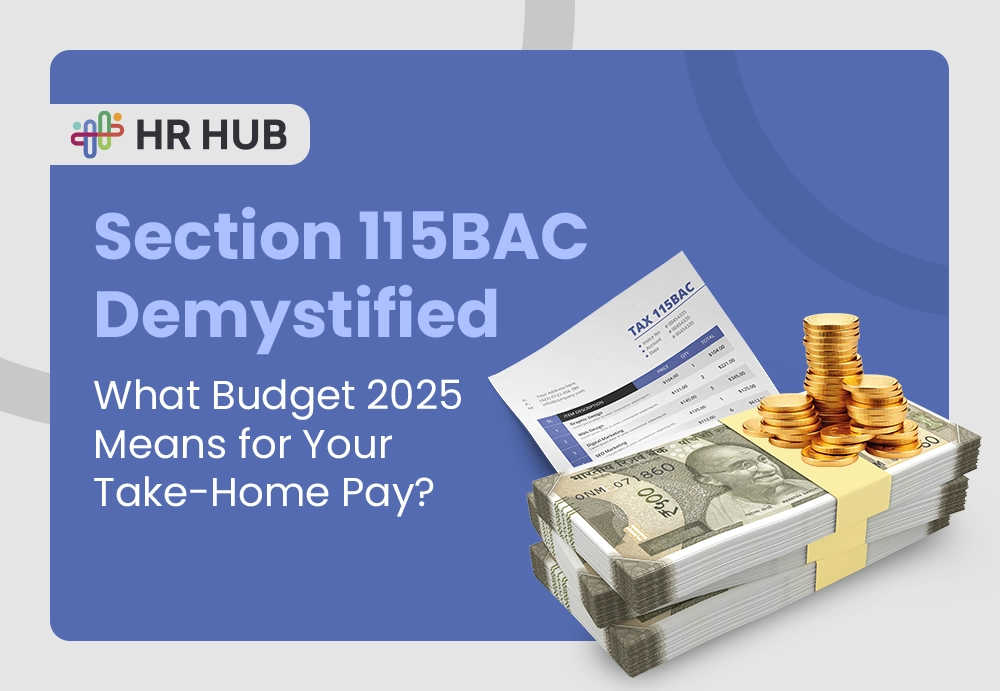Now, hospitality is turning inwards towards its employees, who form the heart of this customer-centric industry.
Flexibility is now a key feature of transforming the hospitality workplace. Leaders such as Sabu Raghavan, Vice President of Human Resources at Hilton South Asia, have been strong advocates for it.
His visionary approach highlights the potential of flexibility to transform how an organization attracts, retains, and empowers talent. This blog explores the traditional challenges of hospitality workplaces, reveals Hilton's innovative strategies, and envisions a future fueled by adaptive work practices.
Understanding the Challenges of Traditional Hospitality Workplaces
Hospitality, being an industry, has always been incapable of holding talent within the organization.

For many decades, the sector has survived strict work structures that required people to spend much time in service.
Career Progression and Retention Challenges
Furthermore, unclear career progression paths discourage long-term association, and many workers view hospitality jobs as transitional rather than aspirational. This is further complicated by the challenging nature of the jobs, especially customer-facing ones, which require employees to be calm and professional even in the most stressful situations.
Impact of COVID-19 on Hospitality Staffing and Flexibility
The COVID-19 pandemic further accentuated these issues. With industries worldwide shifting to remote and hybrid work models, hospitality's reliance on physical presence became an all-too-obvious weakness. Most employees moved to more flexible sectors, leaving the industry severely understaffed.
Pandemic's Impact on Mental Health and Flexibility in Hospitality
Additionally, the pandemic highlighted issues of the mental health of hospitality employees. The rise in customer expectations in all aspects and concerns over job insecurity has placed staff under immense pressure. Together, these pressures have made bold rethinking regarding flexibility a must in the new hospitality workplace.
Flexibility as a Game-Changer: Hilton’s Approach
It has been recognized that employee satisfaction is closely related to the organization's success. Therefore, integrating flexibility into Hilton's operational DNA has created a work culture that satisfies employee needs without compromising service excellence.
Flexible scheduling is one innovation that Hilton employs. Where traditional shift patterns are rigid, Hilton has created opportunities for workers to schedule under their needs and requirements. Such adaptability will facilitate the worker's ability to balance work and life and improve morale.
For example, a housekeeping staff member can request specific days off well in advance, or a front-desk associate can swap shifts easily through a digital portal.
Another important component of Hilton's strategy is remote work, which has become critical for roles that do not require on-site presence. For instance, corporate teams and reservation agents have embraced hybrid or fully remote setups, enabling them to work efficiently from home.
This has helped increase Hilton's talent pool and made it a choice employer in a hotly competitive job market. In addition, cross-functional training has evolved as the core of Hilton's workforce development. Employees learn a variety of skills, enabling them to transition between tasks. This facilitates career progression without causing any operational setbacks during peak periods.
Retention and Growth: Hilton’s Comprehensive Strategy
Flexibility alone cannot make the workforce resilient. Hilton gives its employees a sense of belonging, purpose, and growth only through retention strategies.
Career development programs become the key to this strategy. Hilton offers various learning opportunities, from entry-level workshops that build skills to advanced leadership training programs. This helps employees think about a lifelong career in the organization and not just a short-term employment opportunity in hospitality.
Recognition and rewards are equally integral to Hilton's employee engagement efforts. The company's global program, "Catch Me at My Best," is one example.
Employees are recognized in public forums, given money, and provided with promotion opportunities. These programs are designed to create an appreciative culture and motivate employees to perform better at work. Hilton also takes mental health and well-being seriously, which is uncommon among its competitors.
It means offering its employees 24/7 counseling services, stress management workshops, and wellness programs targeted to their needs. The company's initiative Thrive@Hilton especially contributes to maintaining work-life balance and proves its commitment to workforce welfare.
Technology as a Catalyst for Flexibility
One characteristic of Hilton's flexible work environment is the seamless technology integration. Advanced AI-powered scheduling systems enable managers to develop rosters fairly, considering the employees' preferences and the business's needs. The same systems can predict staffing needs by analyzing historical data, ensuring smooth operations at peak times.
Hilton's employee self-service platform enables employees to further control their work lives by managing their schedules, requesting time off, and accessing training. The feeling of ownership and responsibility boosts employee satisfaction.
Collaboration tools like Zoom and Microsoft Teams have transformed how Hilton's hybrid teams communicate. Such platforms allow real-time collaboration to keep remote and on-site employees connected and in sync.
Hilton also adopted mobile-first technology to allow employees to get access to the most essential resources anywhere, anytime. This makes the organization more efficient at operations and aligns with a tech-savvy workforce preference.
The Ripple Effects of Flexibility on Organizational Success
The impact of flexibility is far beyond employee satisfaction. Hilton has unlocked tremendous organizational benefits through a supportive and adaptable workplace. Employee retention rates have improved dramatically, reducing recruitment and training costs. In addition, satisfied employees are likely to deliver exceptional guest experiences, contributing directly to customer loyalty and revenue growth.
Hilton's flexible policies have fortified its commitment to inclusion. Because of these accommodating policies, parenting, students, and caregivers easily find a fit within hospitality environments, adding the richness of diverse thinking to its talent profile.
Looking Ahead: The Future of Flexibility in Hospitality
As the hospitality industry evolves, flexibility will play a central role in shaping its future. Work-life integration is set to become the norm, with employers offering comprehensive support systems such as on-site childcare, eldercare assistance, and wellness programs.
The rise of gig economy-inspired models may further revolutionize the sector, allowing employees to choose assignments based on their availability and preferences. Sustainability will also influence flexibility, with remote work reducing commuting-related emissions and green workplace initiatives becoming standard practice.
Building a Resilient Hospitality Workplace
Sabu Raghavan's championing of flexibility at Hilton has set a benchmark for the hospitality industry. With innovative solutions to longstanding challenges, Hilton has created a workplace where employees thrive and businesses succeed.
Flexibility will remain the key to building resilient, inclusive, and future-ready workplaces as the industry adapts. The journey toward flexibility is a transformation and a revolution for the hospitality sector.





